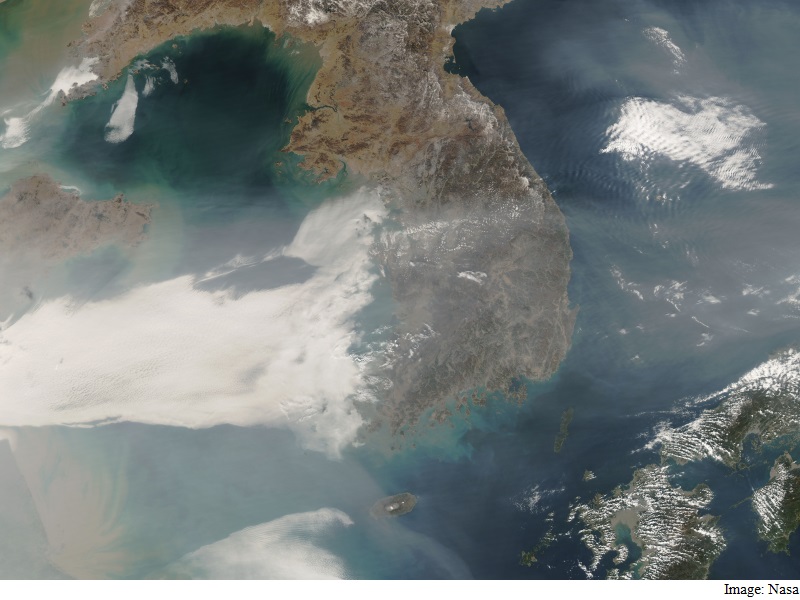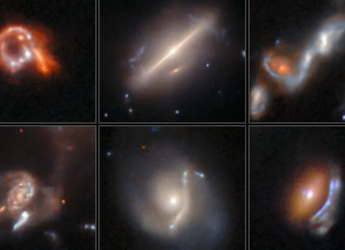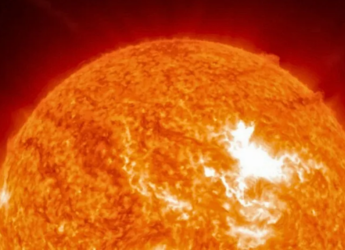- Home
- Science
- Science News
- Nasa, South Korea to Develop Global Air Quality Monitoring System
Nasa, South Korea to Develop Global Air Quality Monitoring System

The Korea US-Air Quality study (KORUS-AQ) will assess air quality across urban, rural and coastal areas of South Korea using the combined observations of aircraft, ground sites, ships and satellites.
"KORUS-AQ is a step forward in an international effort to develop a global air quality observing system," said James Crawford, scientist on the project from Nasa's Langley Research Center in Hampton, Virginia.
"Both of our countries will be launching geostationary satellites that will join other satellites in a system that includes surface networks, air quality models, and targeted airborne sampling," Crawford added.
South Korea's capital Seoul is one of the world's five most-populated metropolitan areas.
Because of the country's varied topography and its location close to rapidly industrialising China as well as ocean, the impacts associated with the many factors controlling air quality are larger and often easier to measure over the Korean peninsula than elsewhere.
"Working with our South Korean colleagues on KORUS-AQ, we will improve our understanding of the detailed factors controlling air quality, how the processes interact, and how they are changing over time," Crawford said.
KORUS-AQ will benefit the development of a new a constellation of space-borne science satellites and instruments expected to launch in the years 2018-2022 that will make air quality measurements over Asia, North America, Europe, and North Africa, Nasa said.
Get your daily dose of tech news, reviews, and insights, in under 80 characters on Gadgets 360 Turbo. Connect with fellow tech lovers on our Forum. Follow us on X, Facebook, WhatsApp, Threads and Google News for instant updates. Catch all the action on our YouTube channel.
- Samsung Galaxy Unpacked 2025
- ChatGPT
- Redmi Note 14 Pro+
- iPhone 16
- Apple Vision Pro
- Oneplus 12
- OnePlus Nord CE 3 Lite 5G
- iPhone 13
- Xiaomi 14 Pro
- Oppo Find N3
- Tecno Spark Go (2023)
- Realme V30
- Best Phones Under 25000
- Samsung Galaxy S24 Series
- Cryptocurrency
- iQoo 12
- Samsung Galaxy S24 Ultra
- Giottus
- Samsung Galaxy Z Flip 5
- Apple 'Scary Fast'
- Housefull 5
- GoPro Hero 12 Black Review
- Invincible Season 2
- JioGlass
- HD Ready TV
- Laptop Under 50000
- Smartwatch Under 10000
- Latest Mobile Phones
- Compare Phones
- OPPO A6v 5G
- OPPO A6i+ 5G
- Realme 16 5G
- Redmi Turbo 5
- Redmi Turbo 5 Max
- Moto G77
- Moto G67
- Realme P4 Power 5G
- HP HyperX Omen 15
- Acer Chromebook 311 (2026)
- Lenovo Idea Tab Plus
- Realme Pad 3
- HMD Watch P1
- HMD Watch X1
- Haier H5E Series
- Acerpure Nitro Z Series 100-inch QLED TV
- Asus ROG Ally
- Nintendo Switch Lite
- Haier 1.6 Ton 5 Star Inverter Split AC (HSU19G-MZAID5BN-INV)
- Haier 1.6 Ton 5 Star Inverter Split AC (HSU19G-MZAIM5BN-INV)












